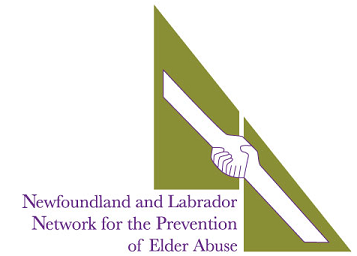Indicators of Abuse
The following indicators may be a sign of elder abuse - especially when they are found in combination.
However, a “sign” or “indicator” of abuse may also be caused by an older person’s health condition, medication, or situation. For instance, a bruise does not always signify assault as some seniors experience minor bruising from skin changes due to aging. Indicators are not necessarily proof of abuse, but they are a prompt that further investigation into the senior’s situation is needed.
ALPHABETICAL LIST OF INDICATORS
The following indicators, especially when found in combination, may signal that a senior is a victim of abuse and/or neglect. In addition, some of these indicators may reflect more than one kind of abuse.
A
Agitation
Appearance, unkempt
Attitude change
Anger
Assets transferred from senior to others
B
Balance, poor
Bed sores
Bruises
Bones, unset broken
C
Cheeks, sunken
Cheques frequently made out to “cash”
Clothes, inappropriate for climate
Clothes, soiled
Cracked lips
D
Deference to abuser
Dehydrated
Depression
Detached retina
Disorientation
“Doctor Hopping”, i.e. seeing a variety of physicians
Drowsiness
E
Emaciated
Evasiveness
Eye contact, lack of
Eyes, sunken
F
Fatigue
Fearfulness, particularly in presence of abuser
Fecal impaction
Food, lack of
Fractures
G
Gag marks
Genital area, refusal to be washed in
Genital exam, refusal to have
Genital infections
Genital pain
Grip marks
H
Hand injuries
Hopelessness, feeling of
House sale, forced
Hygiene, poor
Hyperthermia
Hypothermia
I
Incoherence
Infant/child accessories around senior, eg., hair ribbons, baby books, bottles
Insomnia
Isolation from other family members, friends, etc.
J, K, L
Laboratory findings, abnormal
Legal documents, senior signs without understanding significance
Lice
Listlessness
Living conditions poor in comparison to senior’s assets
Living conditions worse than those of others in home
Locks on refrigerator or cupboards
M, N
Malnourished
Medical Aids, lack of — such as hearing aids, canes, etc.
Medical appointments, missed
Money, discrepancy between known income and ability to pay expenses
Money, lack of
Money, refusal to spend without agreement of abuser
Money, sudden or unexplained withdrawals from accounts
Mouth sores
Muscle contractions, immobility, weakness
Nails, uncut
O
Odour, unpleasant
P, Q
Pain on touching
Pallor
Passivity
“Pharmacy hopping” — obtains medications from numerous different pharmacies
Possessions, unexplained disappearance of
Psychosomatic complaints (complaints of problems that are caused or aggravated by stress)
Punctures
R
Restricted movement
Rope marks
S
Safety features in home, lack of
Scalp injuries
Scars
Scratches
Self-blame
Self-esteem, low
Shame
Signatures on documents/cheques do not resemble senior’s
Sleeping difficulty
Sleeping excessively
Speech, hesitant or inaudible
Sprains
Stories, implausible — especially when explaining cause of injuries
Supervision, lack of required
T
Tearfulness
Teeth or dentures, broken
Therapeutic response, reduced
U, V
Uncontrolled hypertension, asthma, or other medical condition affected by stress
Underwear torn or stained
Unpaid bills, unexplained
Unresponsive emotionally
Unshaven
Urine burns
Urinary tract infections, frequent
W, X, Y, Z
Walking or sitting with difficulty
Weight change
Welts
Will change — such as, leaving assets to someone unexpected
Withdrawal
